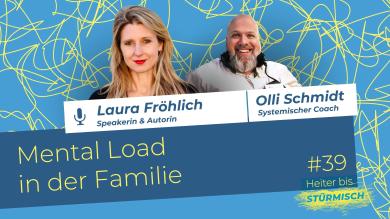
Breastfeeding start tips from NotdienstHebamme
For new parents, breastfeeding is a wonderful but often challenging phase that brings with it many questions and sometimes uncertainties.
Midwife Katharina provides mothers and fathers with advice and support during this special time. With her online service "NotdienstHebamme", she shares her knowledge about pregnancy, birth, postpartum and recovery - both in online courses and in consultation hours.
In this interview, Katharina reveals her most important tips for breastfeeding: What does she think is part of a successful breastfeeding start? What can mothers do if breastfeeding doesn't work right away? And how can partners provide emotional and practical support during this time?
What you can expect in this article
- Tips for a successful start to breastfeeding
- How midwives support breastfeeding difficulties
- Alternatives when breastfeeding is not possible
- How partners can provide the best possible support
- Nutrition tips and taboos for breastfeeding mothers
- Midwife service before and after the birth
- Frequently asked questions (FAQ)
Dear Katharina, what tips do you have for a successful start to breastfeeding immediately after the birth?
Midwife Katharina von Notdiensthebamme: A successful start to breastfeeding ideally begins in the so-called "golden hour". Skin-to-skin contact is key here: it stabilizes the body temperature, calms mother and child and stimulates the release of oxytocin - this binds, supports the involution of the uterus and facilitates the milk let-down reflex.
Another valuable aspect is the "breast crawl " - the intuitive crawling to the breast. If the baby is allowed to follow this natural path, it strengthens its reflexes and makes latching on much easier. For many women, this intuitive start to breastfeeding is an encouraging experience that helps them to establish a loving breastfeeding rhythm right from the start.
How do you provide support when breastfeeding is difficult?
Ideally, there should be no breastfeeding problems. This means that I spend a lot of time preparing well for the birth, the time with the baby and breastfeeding. But of course this doesn't help to avoid every breastfeeding problem. Breastfeeding problems such as sore nipples, engorgement or uncertainty when latching on are common - and not uncommon. Midwives are an important source of support in such cases.
I start by checking the breastfeeding position. A small adjustment can relieve pain and improve milk intake. Finding the right breastfeeding position often takes a little patience, but then the pain quickly subsides.
In addition, frequent, correct latching onis crucial for sufficient milk production - especially in the first few days when the supply-rhythm principle is not yet stable. Gentle breast massages before breastfeeding can also stimulate the milk let-down reflex. It is worth practicing this during pregnancy.
And if breastfeeding is not possible - what alternatives are there and how do you support mothers?
There are various reasons why women do not want to or cannot breastfeed. The medical reasons are really rare. Breast-milk substitute formula (infant formula) is then a safe, tested alternative: the decisive factor is correct preparation - clean water, precise dosage, hygienic handling. It is important to ensure that the food contains pro- and prebiotics to support the baby's intestinal flora.
Bottle-fed babies do not have to do without closeness. That's why I encourage mothers who don't want to or can't breastfeed to give their baby the same closeness when bottle-feeding as would be normal when breastfeeding.
Sometimes expressed breast milk is also a transitional or supplementary option. My approach is clear: decisions are made without judgment. Whether direct breastfeeding, pumping or bottle-feeding - the bond is created through closeness, warmth and care, not just through the type of feeding.
"Breastfeeding is an interplay of body, bonding and inner balance. When these components are in harmony, the experience becomes something wonderful - and if not, there are also loving ways beyond the breast."
How can the environment, such as the partner, be supportive during breastfeeding?
Partners play an essential role - even if they are not breastfeeding:
- They can provide enormous relief with practical help such as food, drinks, housework or changing diapers.
- Emotionally, an encouraging word or loving gestures are often worth a lot during the strenuous breastfeeding times.
- It is particularly helpful if your partner actively supports you: Passing water while breastfeeding, gently taking the baby after a meal or regulating visiting times.
This support creates space for calm, self-confidence and a relaxed breastfeeding rhythm. Your partner can also be helpful when breastfeeding. It is therefore a good idea for them to familiarize themselves with the handling of breastfeeding before the birth.

How important are the mother's nutrition and well-being for breastfeeding? Are there any taboos?
Breast milk is a source of nutrition and protection in one - perfectly tailored to the child's needs and immunoprotective. It contains antibodies and supports the physical and emotional adaptation of both.
There is no strict diet for breastfeeding mothers
Rather, a balanced, varied diet (with proteins, vitamins, omega-3 fatty acids), combined with regular fluid intake, is key. Water or tea after thirst is sufficient - special lactation teas are not necessary. They have no proven medical effect. However, the EMA explicitly advises against drinking fennel tea, as animal experiments have shown that the estragole it contains can be carcinogenic.
Alcohol and nicotine consumption, on the other hand, are taboo - medication only after consultation
Alcohol passes into the breast milk and has an effect on the baby. The parents' reaction speed should also be as good as possible. Alcohol inhibits the ability to react and is therefore taboo for this reason alone.
Nicotine should also be avoided. It is harmful to the baby in the air, on the clothes of the caregivers and also in breast milk. Some medicines also pass into breast milk. Medication should therefore never be taken without consulting a midwife or doctor.
Otherwise, if you are relaxed and balanced, you will breastfeed more easily and for longer
Thank you so much for the interview, Katharina!
Midwife service before and after the birth
In cooperation with NotdienstHebamme, pme Familienservice offers professional support and supplementation to outpatient midwife care:
1. tested online courses: With the tested tips and practical instructions , new parents and pregnant women receive comprehensive support in the online courses from NotdienstHebamme that can be accessed at any time - ideal for preparing for the new addition to the family.
Online courses are available on the following topics: Birth preparation, baby care, regression, baby massage, breastfeeding.
The online breastfeeding course from NotdienstHebamme contains comprehensive preparation for breastfeeding, an introduction to different breastfeeding positions and help with pain and breastfeeding problems. Incl. "Breastfeeding e-book" with over 50 pages and all topics again in written form.
2nd midwife consultation hour: With midwife advice from NotdienstHebamme via video chat, telephone or e-mail, parents receive quick answers and support, even with psychosocial stress such as mood swings and baby blues.
Further information on the cooperation with NotdienstHebamme can be found in the service portal My Familienservice. Not yet a customer of pme Familienservice? Please contact us!
FAQs on starting and maintaining breastfeeding
1. what is meant by the "golden hour" when starting breastfeeding?
The "golden hour" refers to the first hour after birth, when skin-to-skin contact is established between mother and baby. This promotes the start of breastfeeding by strengthening the bond and supporting the milk let-down reflex.
2. how can I avoid breastfeeding problems such as sore nipples?
A correct breastfeeding position and regular, correct positioning of the baby are crucial. Midwives can help to find the optimal position and thus alleviate pain.
3 What to do if breastfeeding is not possible?
Breast-milk substitute formula is a safe alternative. Hygienic preparation is important. Closeness and care during feeding are just as important as the type of nutrition.
4 How can partners support breastfeeding?
Practical help in the household, emotional support and active participation, such as taking care of the baby after mealtimes, provide relief for the breastfeeding mother.
5 What are the nutritional tips for breastfeeding mothers?
A balanced and varied diet and sufficient fluids are important. Alcohol and nicotine are taboo. Medication should only be taken in consultation with a midwife or doctor.











